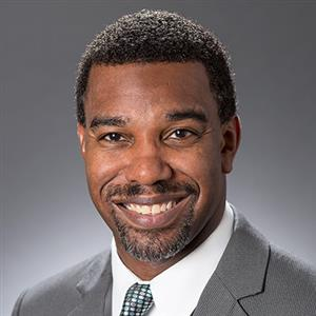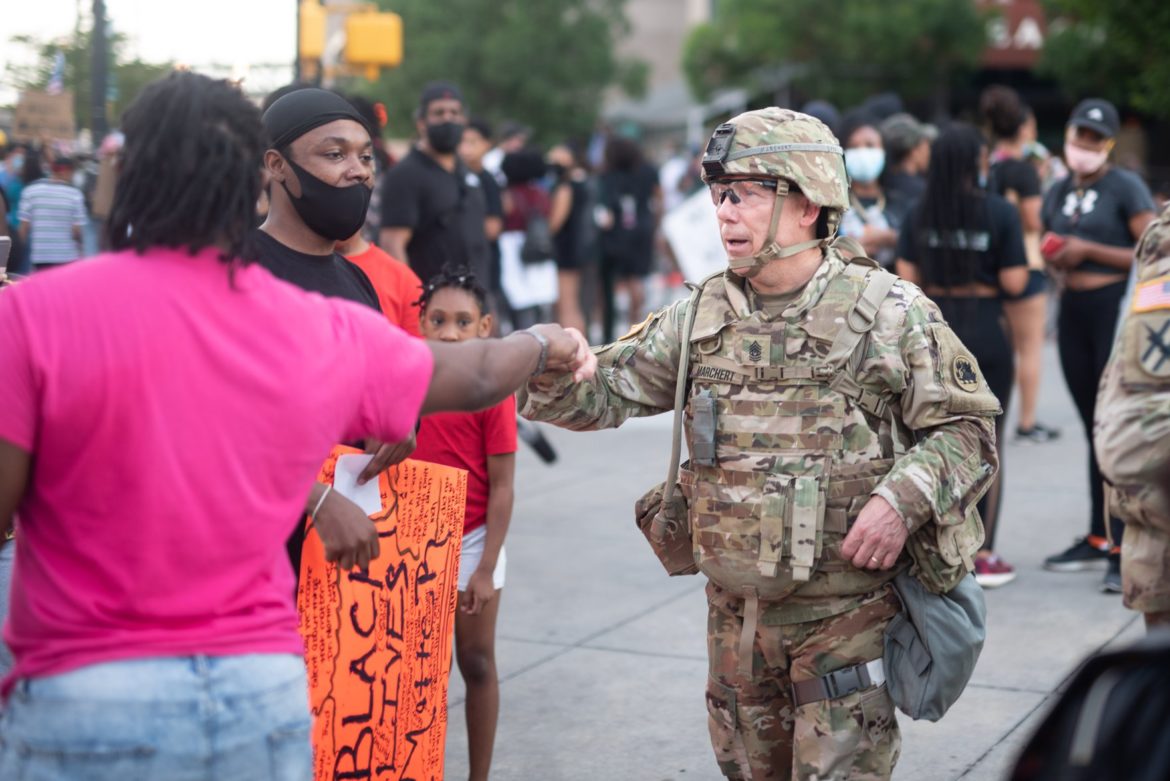![]() America is reckoning with racial injustice. The days of protests in response to George Floyd’s killing by Minneapolis police — and the deaths of Ahmaud Arbery, Breonna Taylor and many others over the last several years — represent a turning point with implications for our entire nation, and especially for all of us involved in the justice system.
America is reckoning with racial injustice. The days of protests in response to George Floyd’s killing by Minneapolis police — and the deaths of Ahmaud Arbery, Breonna Taylor and many others over the last several years — represent a turning point with implications for our entire nation, and especially for all of us involved in the justice system.

Steve Bishop
We must face head-on the reality that our nation’s justice system is plagued by systemic racism. Bold, meaningful and far-reaching action is required. And soon. The time for platitudes and vague promises about pursuing racial equity in the justice system has passed. We must channel our outrage, grief and hope into intentional, concerted efforts to transform our communities into places where every child and individual has the freedom to belong, to live without the daily threat of fear and violence and to walk in the world with dignity and respect.
I am writing this message as a former probation officer and as the current leader of the Annie E. Casey Foundation’s work on transforming juvenile probation. I believe that an honest accounting of probation’s role in perpetuating racial disparities is necessary to advance any long-term efforts at reform.
My aim here is narrower, however. For now, I want to suggest how juvenile probation leaders and line staff might contribute today as America is grappling with its racist past and present.
I focus on the right now because, as with policing, we already know many of the long-term solutions for addressing racial inequities in juvenile justice and in probation specifically. Indeed, the Casey Foundation’s 2018 report, “Transforming Juvenile Justice: A Vision for Getting it Right,” included a 15-item checklist of concrete steps that juvenile probation agencies can take to promote racial equity and inclusion. Many more important ideas are sure to emerge through tough conversations in the weeks and months ahead with community members, people with lived experience and young people in the justice system.
The challenge, though, isn’t to figure out what policy and practice reforms to enact, but rather to mobilize in our systems the will to pursue a necessary and overdue transformation. The challenge is to shift the culture of probation agencies to actively combat racism — to be antiracist, multicultural and inclusive. That requires examining the purpose of probation and building consensus around the values that are essential for probation to play a part in ending systemic racism.
History shows that these kinds of changes are difficult. That’s why it’s so important for probation leaders to take concrete steps immediately. Probation chiefs must show their staff — as well as the youth, families and communities probation officers work with — they have the will to transform themselves and their profession. That’s best demonstrated through actions that show humility, compassion and commitment to race equity.
Specifically, I suggest five immediate priorities:
- Acknowledge the deep and legitimate anger people are feeling over the killing of George Floyd and the pervasive racial inequities in the justice system, and signal clearly that probation agencies stand behind all who choose to raise their voice in protest. As many police chiefs and mayors around the country have done, probation chiefs should consider marching alongside those peacefully demanding reform. Chiefs should also communicate support for probation staff to participate in protests and voice their opinions publicly on issues of justice system reform if they so desire.
- Make clear to staff that probation means business when it comes to combating all forms of racial bias and to cultivating an organizational culture where youth, families and communities served by probation agencies feel valued and respected at all times. Probation leaders should acknowledge that probation is an extension of the system of control that people are protesting against, and they should take immediate action to intensify the focus on racial and ethnic equity within their departments, beginning with the checklist. Also, probation leaders should make clear through words and actions that disrespectful treatment of youth, families and communities will not be tolerated.
- Listen to young people and their families and give them an opportunity to talk freely about the justice system without fear of condemnation or reprisal from probation or the courts. Probation agencies should consider bringing in community-based partners to facilitate groups and/or help individual youth deal with their feelings about the killing of George Floyd, the Black Lives Matter movement and related issues. In their own dealings with young people, probation personnel should be active and nonjudgmental listeners. Probation staff should invite youth to share their own personal feelings, thoughts and beliefs, rather than telling youth what to think.
- Provide opportunities for young people to connect with community leaders and get involved in efforts to promote new approaches to community safety. Perhaps more than anything else, the protest movement emerging from George Floyd’s death has shown that America’s communities of color are home to an abundance of caring, concerned and justice-seeking adults who are ready and eager to contribute. In the days ahead, probation agencies should do everything they can to identify and reach out to these leaders and forge connections that give young people on probation a chance to work with and learn from them.
- Support and protect youth who want to participate in the protests. Probation personnel must understand the justifiable outrage that many young people feel at this moment. Probation mustn’t repress those emotions or prohibit young people from raising their voices. Quite the contrary. For those young people who wish to participate, probation should:
- Seek to connect youth with responsible organizers who are planning and orchestrating peaceful protests, if possible;
- Provide young people with clear guidance about how to participate safely in protests and avoid dangers or difficulties; and
- Minimize legal consequences for youth by refusing to sanction those whose participation in protests violate their terms of probation and by intervening on young people’s behalf if they are arrested while participating in a protest.
Ultimately, these moves are meaningful only if they are followed by deeper and more systemic action. After all, they are only first steps.
Steve Bishop is senior associate in the Annie E. Casey Foundation’s Juvenile Justice Strategy Group who leads their Probation Transformation work. Steve was a juvenile probation officer and supervisor, then a state-level policymaker in juvenile justice before joining the Foundation.
